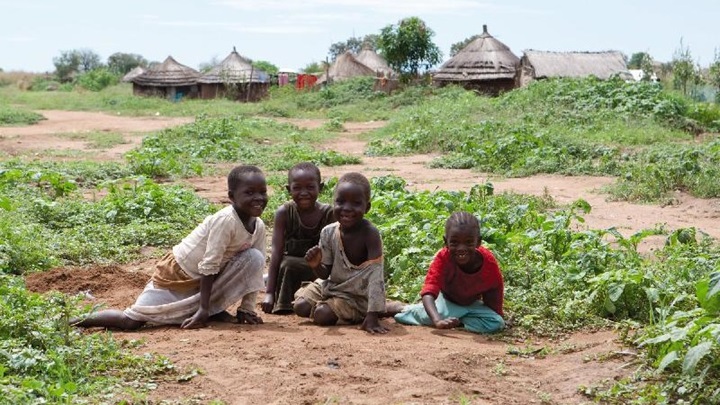TICAD9 Series (4): Research on Peace and Stability in Africa
2025.08.19

Photo: JICA/ Shinichi Kuno
As part of the Ninth Tokyo International Conference on African Development (TICAD9), to be held in Japan from Aug. 20 to 22, 2025, JICA will host a series of thematic events on diverse topics. JICA Ogata Research Institute will also hold a thematic event on migration and human security in Africa . Be sure to join us!
For details of a research project related to this event, please see the link below.
Research Project:
Journeys for Human Security in Africa
While most migration from sub-Saharan Africa occurs within the region rather than to Europe or North America, this has been little studied. This project focuses both on intra-sub-Saharan African migration and on the experience of migration from Africa to Japan. Through interviews with migrants, it sheds light on individual migration journeys from a human security perspective.
In the lead-up to TICAD9, the JICA Ogata Research Institute is sharing a series of articles highlighting its research and initiatives on Africa:
TICAD9 Series (1): Research on the Role of Agriculture in Africa’s Development
TICAD9 Series (2): Research Highlights on Africa’s Economic Development
TICAD9 Series (3): Research Highlights on Tackling Social Challenges in Africa
This article, a fourth installment, focuses on the theme of “Peace and Stability,” one of the three pillars of TICAD9 alongside “Economy” and “Society,” under the overarching vision of “Co-create innovative solutions with Africa.”
To achieve a peaceful and stable Africa, it is essential to promote the consolidation of democracy and the rule of law, prevent conflicts, build peace, and strengthen community foundations. JICA Ogata Research Institute is conducting a wide range of studies, from various perspectives, aimed at advancing peace and stability. Some of these are: how to support recovery from conflict, how to assist refugees during prolonged crises, and how to prevent conflicts from arising in the first place, thus sustaining peace.
This book is a historical account of JICA’s support for refugees in Uganda, which has accepted many refugees from South Sudan and other neighboring countries. The author, who was directly involved in this process as a JICA official, provides a detailed picture of the protracted refugee situations in Uganda during the 2010s.
This study explores the nexus between resilience, peacebuilding, and preventing violent extremism, providing a shared framework for bringing about a comprehensive approach to sustaining peace that extends over the dimensions of peace, security, governance, development and humanitarian assistance.
Focusing on factors such as horizontal inequalities, this study considers the dynamics of Africa's conflicts from a perspective that combines structural causes and political processes by examining the interface between them.
Peace and stability also require the promotion of Women, Peace and Security (WPS) initiatives—ensuring their participation in conflict prevention and resolution, and addressing their protection, rights, and specific needs during conflicts. The institute also researches responses to gender-based violence (GBV).
This project looks at issues surrounding violent conflict and GBV and the challenges to supporting victims. Through studying and analyzing the ways GBV has been recognized within a conflict-affected community, the help-seeking behavior of the victims, and any assistance they are offered by the people around them and the aid community, it discusses improvements to GBV support systems.
JICA Ogata Research Institute also explores peace and stability from the perspectives of youth engagement and sports.
The institute’s researchers conducted a field study in Nairobi as part of the research project “ Youths in Nairobi Slums: Socio-economic Isolation, Discrimination and the Impact of Intergroup Income-Generating Activities ,” which looks at the social challenges faced by slum-dwelling youths from multiple perspectives. It examines how the following factors influence their economic and social status: i) the relationship between the social challenges and the risk of youths turning to crimes or violence ; and ii) income-generating opportunities and interaction between different groups.
Although South Sudan became independent in 2011 after decades of civil war, conflict soon erupted again. Responding to the government’s earnest wish to unite the country through fair play, JICA has supported the “National Unity Day” sports event and Olympic participation—efforts to foster peace and unity through sports.
This research clarifies the actual effects of development assistance through sports. It analyzes social capital—trust between athletes, spectators, and government officials, trust across ethnic groups, and trust between ethnic groups and the state.
Beyond “Peace and Stability,” achieving human security in Africa requires work in “Society,” “Economy,” and other areas. JICA Ogata Research Institute also conducts studies specifically on human security in Africa.
This article examines the position and practice of the concept of human security in the African Union (AU), a regional organization that represents the voices of African countries. It also examines the role that human security has played in the democratization of the Republic of South Africa and the challenges that need to be overcome for the concept of human security to be more effectively used in Africa in the future.
Revisiting Human Security from the Human-Centered Perspective: Results of a Perception Survey in Five African Countrie
By examining individuals’ sense of insecurity regarding the future, this article examines the possibility of using human security as an analytical framework. It uses human security scores calculated from the results of perception surveys conducted on 7,600 individuals across five African countries (Tunisia, Nigeria, Kenya, Gabon, and Angola).
Based on surveys in Kenya, Gabon, Tunisia, Angola, and Nigeria, this report compares objective and subjective threats to identify previously unrecognized threats, response priorities, available adaptation measures, and appropriate recommendations for addressing vulnerabilities.

事業事前評価表(地球規模課題対応国際科学技術協力(SATREPS)).国際協力機構 地球環境部 . 防災第一チーム. 1.案件名.国 名: フィリピン共和国.

事業事前評価表(地球規模課題対応国際科学技術協力(SATREPS)).国際協力機構 地球環境部 . 防災第一チーム. 1.案件名.国 名: フィリピン共和国.

事業事前評価表(地球規模課題対応国際科学技術協力(SATREPS)).国際協力機構 地球環境部 . 防災第一チーム. 1.案件名.国 名: フィリピン共和国.

事業事前評価表(地球規模課題対応国際科学技術協力(SATREPS)).国際協力機構 地球環境部 . 防災第一チーム. 1.案件名.国 名: フィリピン共和国.

事業事前評価表(地球規模課題対応国際科学技術協力(SATREPS)).国際協力機構 地球環境部 . 防災第一チーム. 1.案件名.国 名: フィリピン共和国.